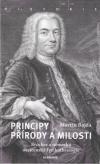
Principy přírody a milosti: Brockes a německá osvícenská fyzikotheologie
(Principles of Nature and Grace: Brockes and the Physicotheology of German Enlightenment)
The book is the first Czech monograph on the Hamburg thinker and poet B. H. Brockes and perhaps the first purely philosophical one internationally. It reconstructs the philosophical and religious roots of Brockes' poetic cycle "Irdisches Vergnügen in Gott" which was the most extensive work of German poetry in the 18th century and poetically represented (and genuinely developed) many crucial elements of the Enlightenment Rationalism. Brockes' thinking is embedded in the development of the German Enlightenment and modern philosophy in general, and the philosophical analysis is accompanied by a broader cultural-historical, literary-aesthetic synthesis. Brockes is interpreted as a participant of the spiritual history between Leibniz and the Baroque on the one hand, and the late Enlightenment and Weimar classics on the other. His thinking is confronted by thinkers such as Wolff, Reimarus, Herder, Goethe or Lessing.
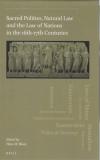
Grotius on the Foundation of Natural Law
The author argues that Grotius may be considered the father of modern natural law only in retrospect, that is, from the perspective of how he was interpreted by his followers and based on the motifs from his work they later developed. It is quite apparent that in the aftermath of the Thirty Years’ War, the idea of religious tolerance had suffered a grave defeat in Europe. The answer to the question whether Grotius bases his concept of natural law on secular or theological foundations thus depends on the perspective from which we pose this question: Grotius builds the natural law on both foundations. His followers, who no longer viewed religion as an integral part of their worldview, interpreted his writings as arguing for natural law’s secular foundations. For us, however, it is his comprehensive approach to a system of international law and the idea of religious tolerance which are the main reasons why Grotius’s writings still deserve to be studied in our times.
In: H. Blom (vyd.), Sacred Polities, Natural Law and the Law of Nations in the 16th-17th Centuries, Leiden: Brill, 2022, pp. 223–241. ISBN 978-90-04-49853-2.
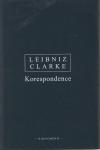
Gottfried W. Leibniz – Samuel Clarke: Korespondence
(Gottfried W. Leibniz – Samuel Clarke: Correspondence)
The polemical correspondence between German polymath G. W. Leibniz and English theologian, physicist and Newtonʼs pupil S. Clarke, which bursted out in 1710s, counts among the most famous and influential exchanges in the history of European thought. The correspondence consists of five letters by Leibniz in French and five letters by Clarke in English. The central topics include the foundations of Newtonʼs ground-breaking mathematico-physical explication of reality, and its impact on the areas of mathematics, epistemology, theology, and natural philosophy. The influence of the standpoints of both correspondents reaches up to formulating the theory of General relativity by Einstein. The present Czech edition is thus likely to provide welcome and needed resource even for those involved in theory and history of natural sciences.
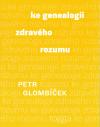
Ke genealogii zdravého rozumu
(On the Genealogy of Common Sense)
The book examines the rich variety of the conceptions of common sense from Aristotle to 18th century philosophy, while it focuses on the reflections of common sense in early modern philosophy. The first part of the book deals with the roots of the modern concept in ancient Greek and Roman thought (Aristotle, Seneca). The early modern period is first approached from the perspective of Descartes’s project, centred on the development of the faculty of judgement, modelled on Seneca’s conception of the the bona mens. It is followed by a treatment of Berkeley’s notion of common sense, which is presented as a variant of the Cartesian notion. The following chapters consider a ‘communal’ notion of common sense (G. Vico, Shaftesbury), the Scottish school of common sense (J. Priestley, J. Oswald, T. Reid) and Kant.
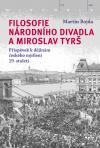
Filosofie Národního divadla a Miroslav Tyrš
(The Philosophy of the National Theatre and Miroslav Tyrš)
The book presents a new general interpretation of the main lines of thought, values and efforts of the Czech Revival with regard to their culmination and real shape in the building of the National Theater. It is a belated appreciation of the 150th anniversary of the laying of the foundation stone of the National Theatre and the premiere of Smetana's Dalibor, held on that occasion, an anniversary which, despite being associated with the largest celebration of the Czech nation in the 19th century, passed almost unnoticed. It shows, in contrast to narrowly identitarian and traditional nationalism, the nation-forming process in its historical course and theoretical reflections in the Enlightenment and Romanticism as a mediator of social and cultural emancipation: as a process of inevitable modernization, which in our country is more strongly intertwined with the ethization of historical development. It meant a progress in the civic self-liberation and creative self-realization of man (nation). The National Theatre and the work of B. Smetana or M. Tyrš serve, among other things, to clarify how the innovation of the art form depends on the progressiveness of the contents, on the value foundation and social integration of the work.
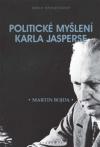
Politické myšlení Karla Jasperse
(The Political Thought of Karl Jaspers)
On the occasion of the 50th anniversary of Karl Jaspers' death, the book provides a synthetic interpretation of his thinking and work through its political dimension. Jaspers became one of the most influential modern German philosophers, first as the founder of the philosophy of existence, after World War II as the initiator of its turn to the historical and political sphere of human existence, which has now proved to be inevitable. The presented publication brings the first Czech monograph on Jaspers and one of the most extensive on the international scale. It works with an as yet uninterested amount of archival materials from Jaspers' estate and correspondence.
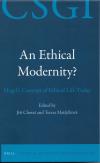
An Ethical Modernity? Hegel’s Concept of Ethical Life Today
The collection of essays An Ethical Modernity? investigates the relation between Hegel’s doctrine of ethical life (Sittlichkeit) and modernity as a historical category and a philosophical concept. In this collection, the authors analyze Hegel’s theory of ethical life from various perspectives: social ontology, social practices, theory of judgment, relations between Hegel’s theory of ethical life and Kant’s ethics, Hegel’s philosophy of family, of the ethos of state and of international relations etc.
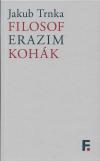
Filosof Erazim Kohák
(Erazim Kohák: A Philosopher)
Trnka seeks to introduce to philosophy of Erazim Kohák, one of the most prominent figures in Czech philosophy in the late twentieth century. Trnka’s main objective is to explore the pivotal concepts of Kohak’s thinking and to sketch his philosophy in a comprehensive and systematic manner. The book contains also a brief Kohak’s biography and a bibliography of his books and articles.
Studie a prameny k dějinám myšlení v českých zemích, 21.
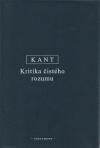
Immanuel Kant. Kritika čistého rozumu
(Immanuel Kant. Critique of Pure Reason)
Kant’s Critique of Pure Reason (1781, 1787) represents within the history of philosophy a major milestone in the development of epistemology and metaphysics. The first edition of Jaroslav Loužil’s Czech translation prepared in collaboration with Jiří Chotaš and Ivan Chvatík, which appeared in 2001, brought the first reliable translation of this work into the Czech language. The second, amended, edition, prepared by Jan Kuneš and Milan Sobotka, includes corrections and changes in wording, which makes the first version of the translation even more accurate. This edition also includes an extensive subject index with explanation of Kant’s concepts and terms.
2nd revised edition. Knihovna novověké tradice a současnosti, 36.
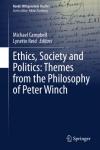
"Winch on Political Authority & Obedience"
The article considers Peter Winch’s novel criticism of Contractarianism in his 1990 “Certainty and Authority”, which links Hume’s criticism with arguments from Wittgenstein’s On Certainty. Using Wittgenstein he questions the desire-belief conception of action, and the view that all reasonable action, and thus also obedience, is based on justified belief. Winch argues instead that rationality is itself based on primitive and habitual trust – and thus also obedience – of authority. Rationality thus does not ground action but, being integral to the practices of the community, is presupposed by any reasonable decision and action. Against this I argue that primitive reaction and habit cannot make sense of obligation, including that of political obedience, because it ignores its conceptual and free character, furthermore that the genealogical and linear account cannot deal with political authority understood as rule of law, since the latter is itself in an essential part the product of theoretical, indeed philosophical, reasoning.
In: M. Campbell & L. Reid, L. (Eds.) Ethics, Society and Politics: Themes from the Philosophy of Peter Winch. Springer, 2020, pp. 103-115. Nordic Wittgenstein Studies, 6. ISBN 978-3-030-40741-4




